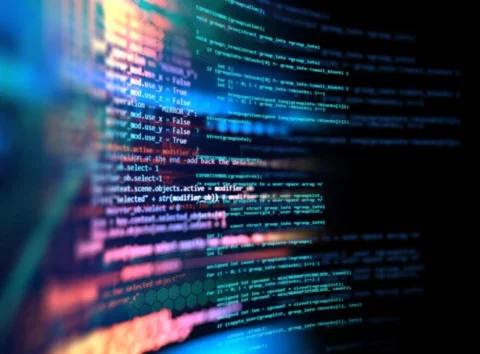
Why the First Amendment also protects code

By Kimberly Adams and Daniel Shin
September 14, 2022
The First Amendment serves as a check on government intervention into our public expression through, for example, spoken or visually signed speech, writing, protesting and coding languages like JavaScript, HTML, Python and Perl.
Computer code as free speech is a relatively new legal concept but has a complicated history. Marketplace’s Kimberly Adams spoke with technology lawyer Kendra Albert, a clinical instructor at Harvard Law School’s Cyberlaw Clinic, about the history of code as protected expression.
The following is an edited transcript of their conversation.
Kendra Albert: The seminal case on this is the 1995 case involving a cryptographer named Daniel Bernstein, who sued the United States government for restrictions called export controls on encryption. And at the time, the United States made it illegal to export cryptography. And it was regulated actually as a munition, like a weapon. And what he said was that the U.S. government was making it impossible for him to share his academic work on cryptography with colleagues in other countries. The district court and the 9th Circuit both agreed that there was expressive, important, you know, First Amendment value in the speech that he wanted to get out there in the world and his scientific ideas and the code that sort of proved that he could do what he said he wanted to do.
Kimberly Adams: How important has that decision been for coding languages and the development of technology since then?
Albert: So I think that it is very important, especially for encryption and online security. I think in some ways, the case represents, I think, also a moment in which the United States government’s approach to certain kinds of technological regulation change quite significantly. I don’t want to suggest it was a foregone conclusion. But I think that the reality was that the position that code was a form of expression is in fact supported by a long history of First Amendment law. And that it, you know, is very consistent with how we see the First Amendment interpreted across a variety of contexts.
Adams: I think a lot of people, who maybe aren’t involved in coding or even thinking about the back end of how our computers run and how the Internet runs, don’t necessarily think of code as a language that could be protected as speech.
Albert: Yeah. You know, in the case of something like Daniel Bernstein, in cryptography it was sort of this was a way of expressing the idea that he had presented in his paper, right, showing how you would do the thing and sort of laying it out in a level of sort of detail and specificity. You know, there’s all kinds of even less, sort of, functional, maybe more expressive things people do with computer code. I have a friend, actually, who I think wrote a marriage proposal in Perl. But it doesn’t necessarily mean, like, oh my gosh, no regulation possible. It just means that the fact that something is source code does not mean that it’s outside the realm of First Amendment protection.
Continue reading this article…
This article first appeared at Marketplace on Sep 14, 2022.
No Comments




